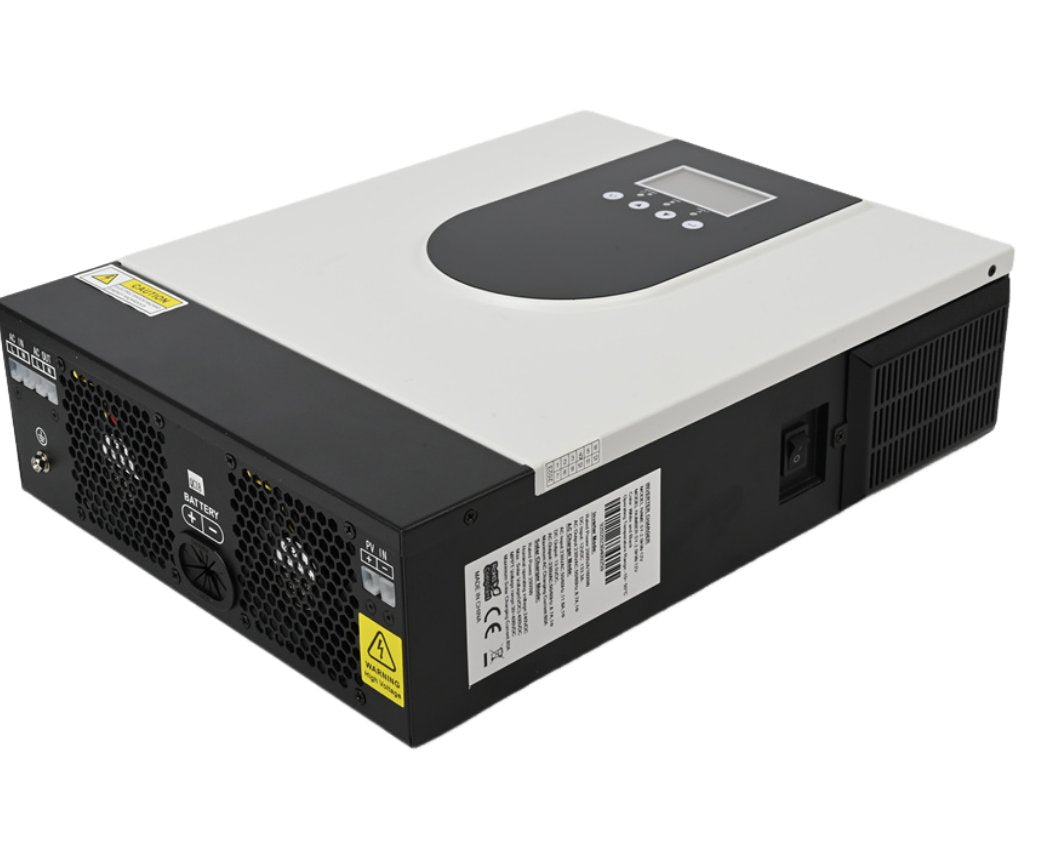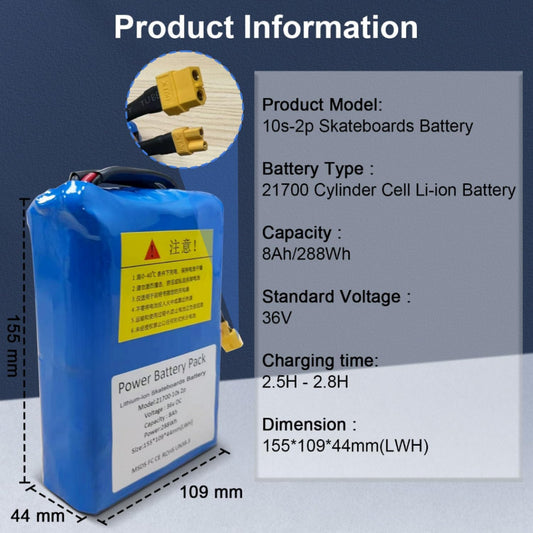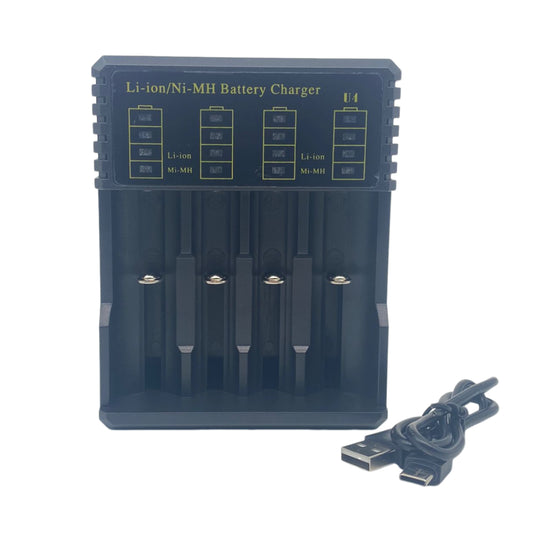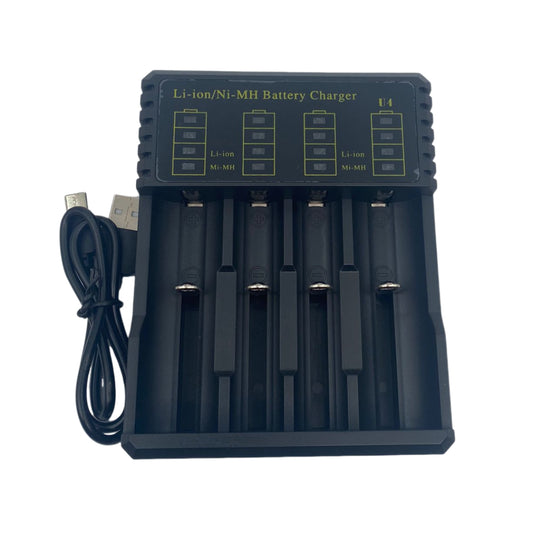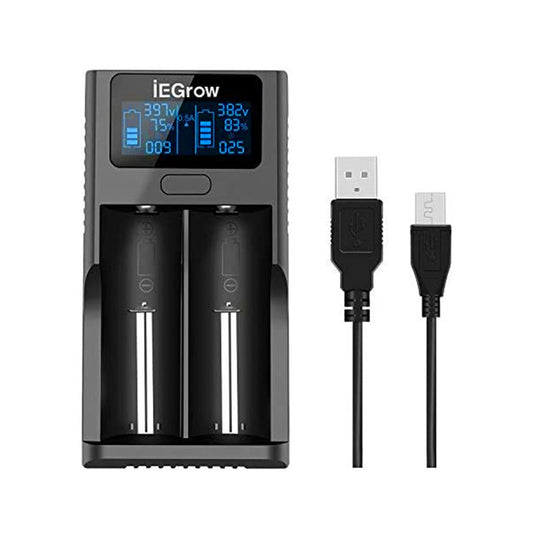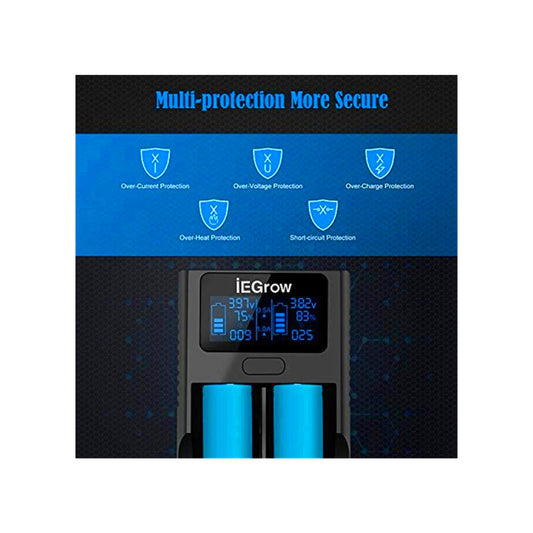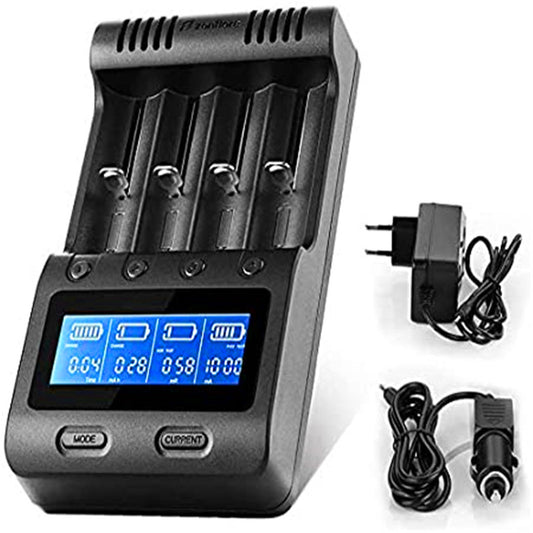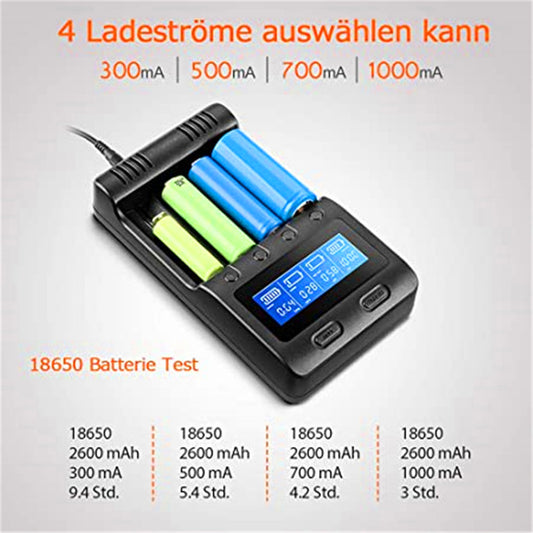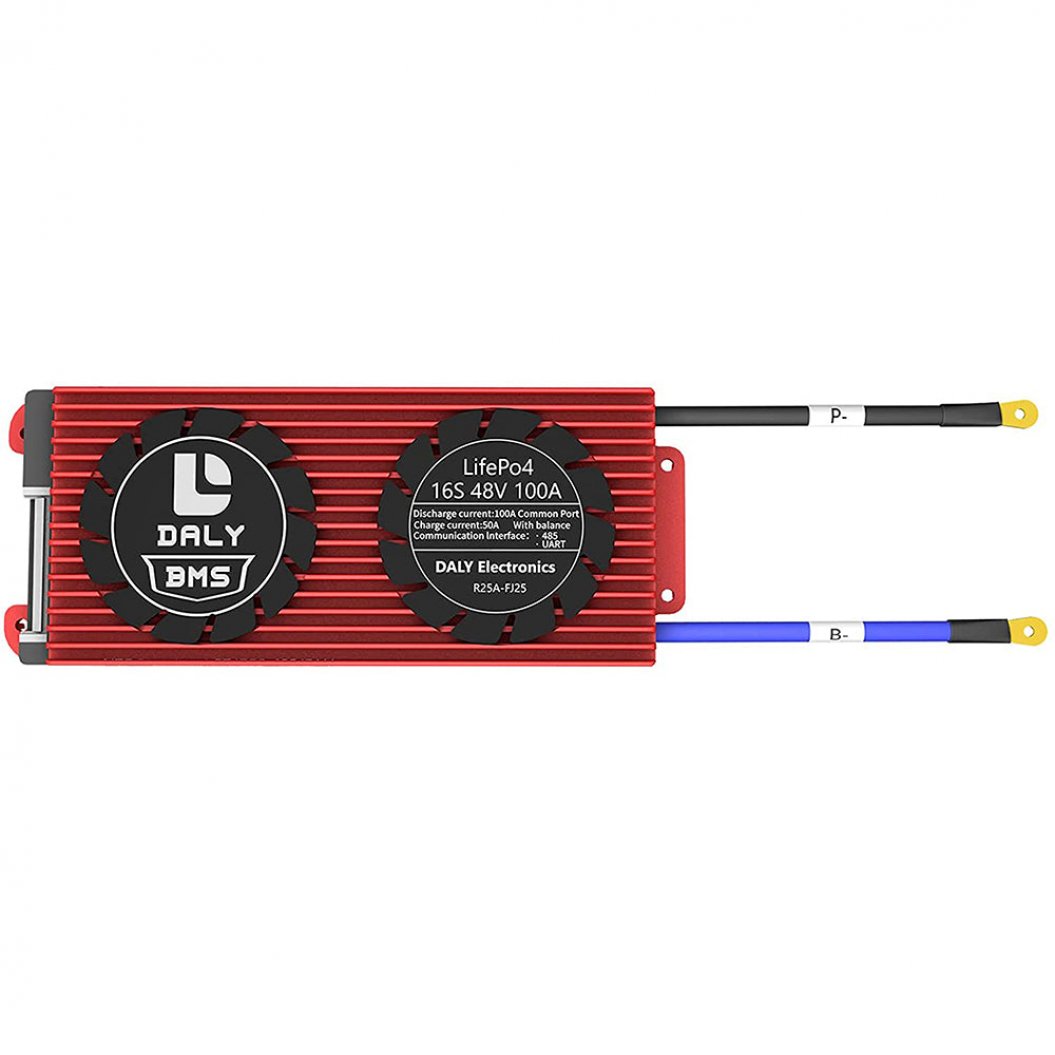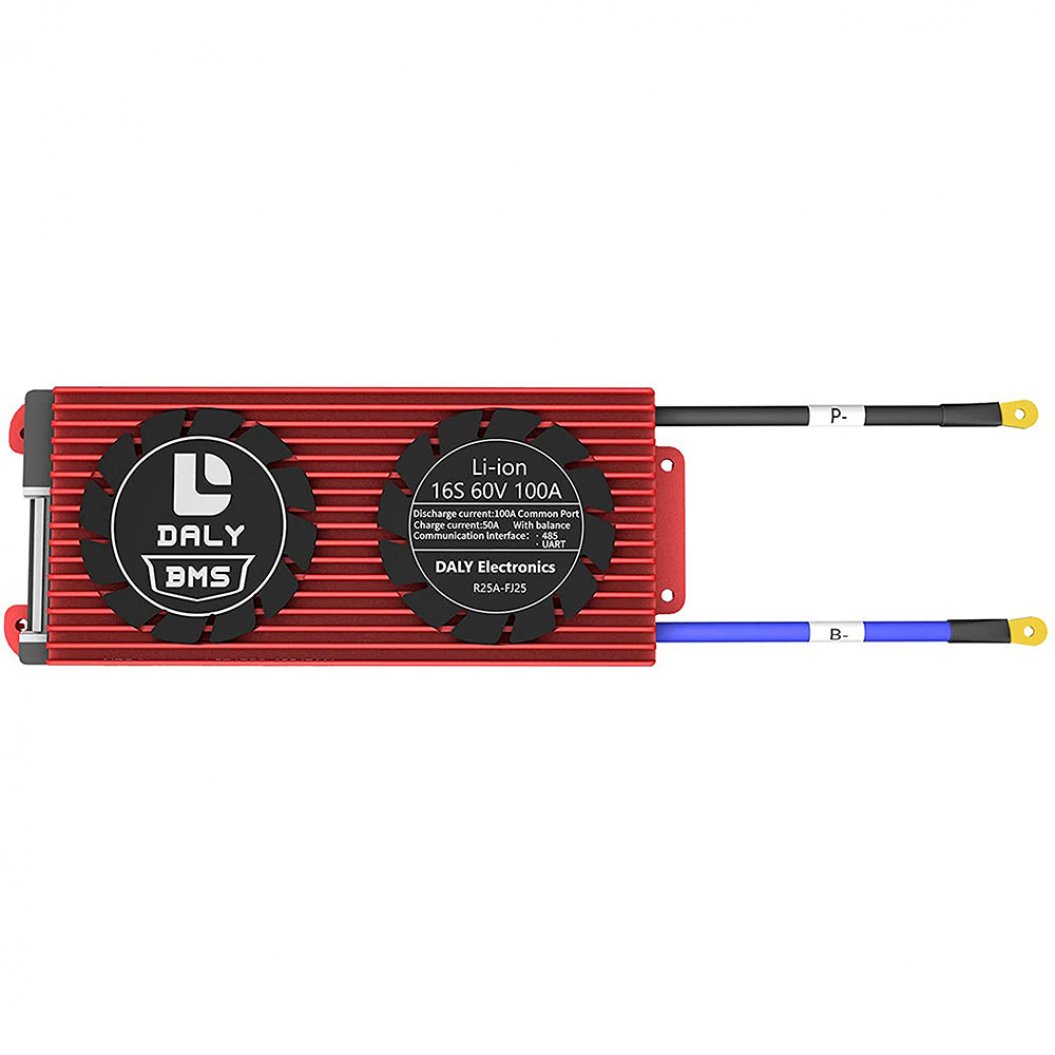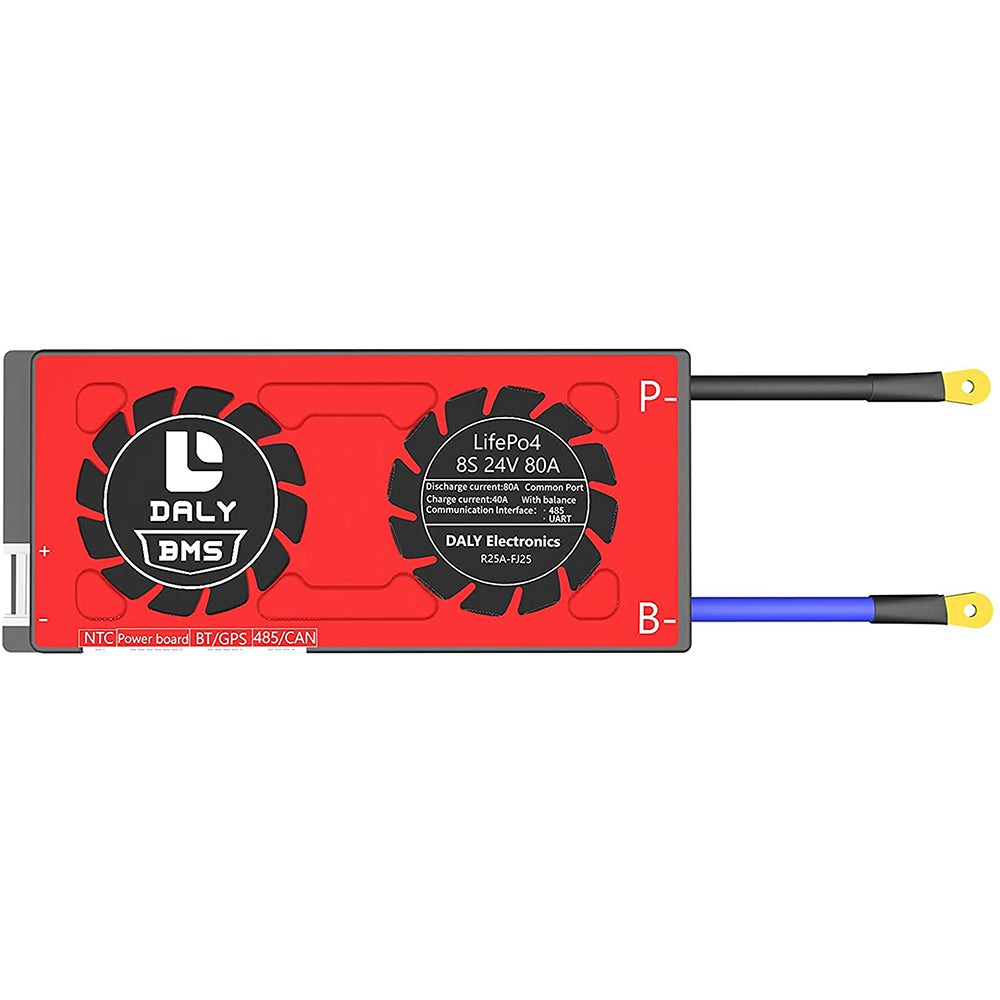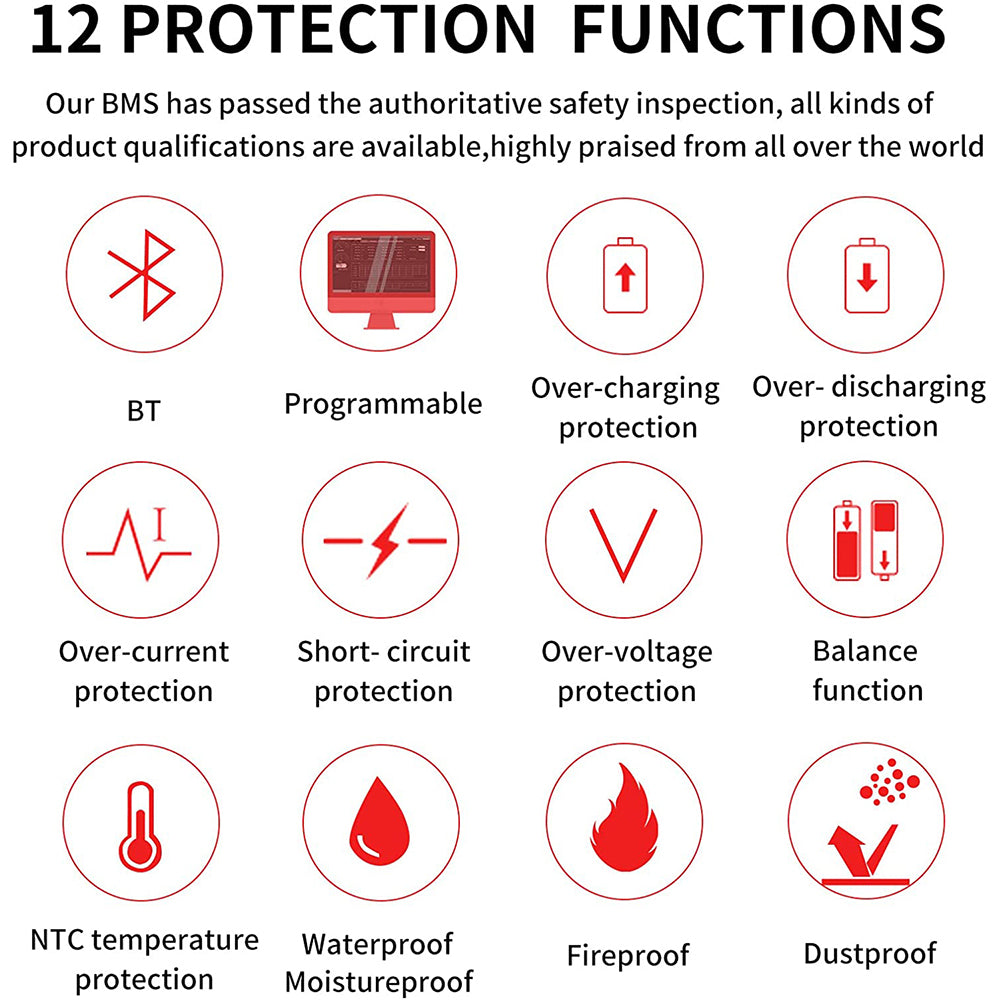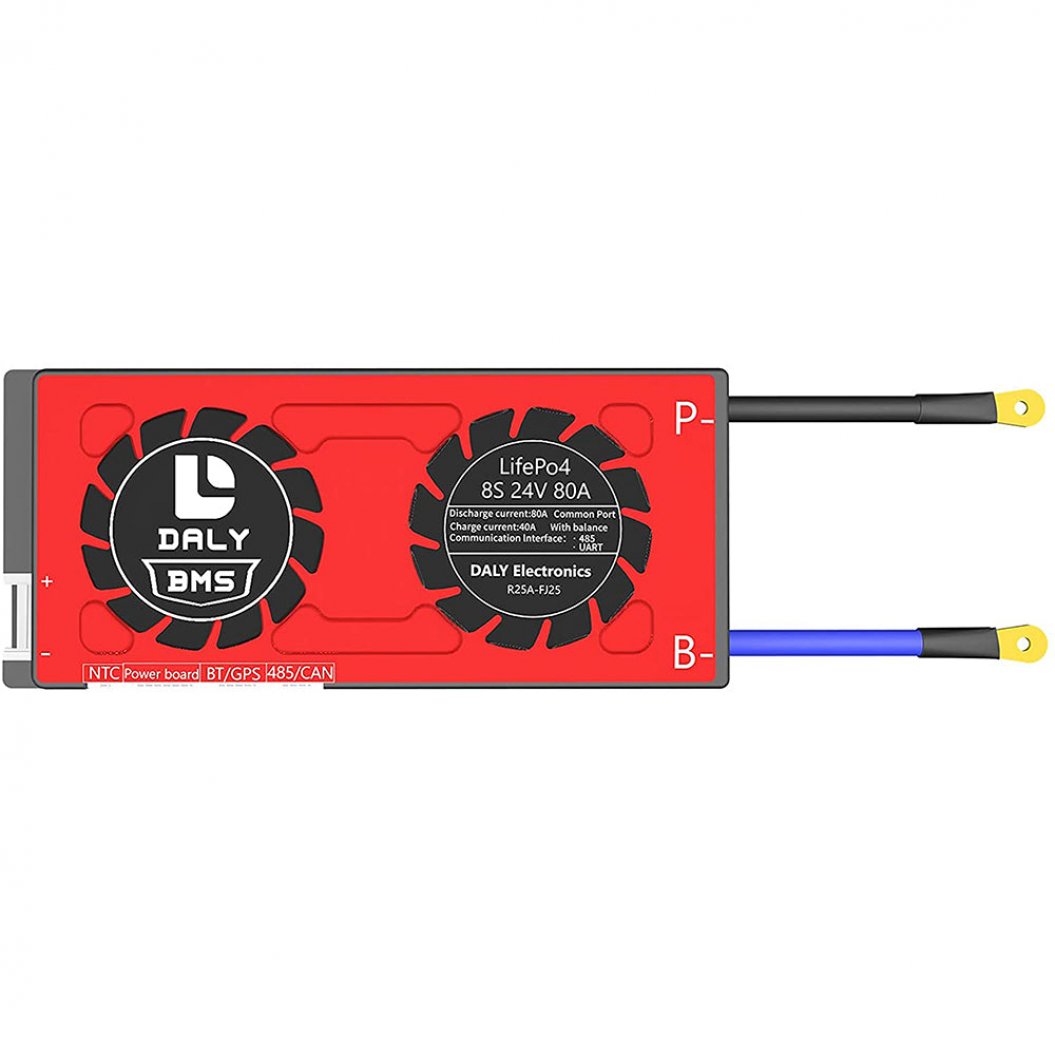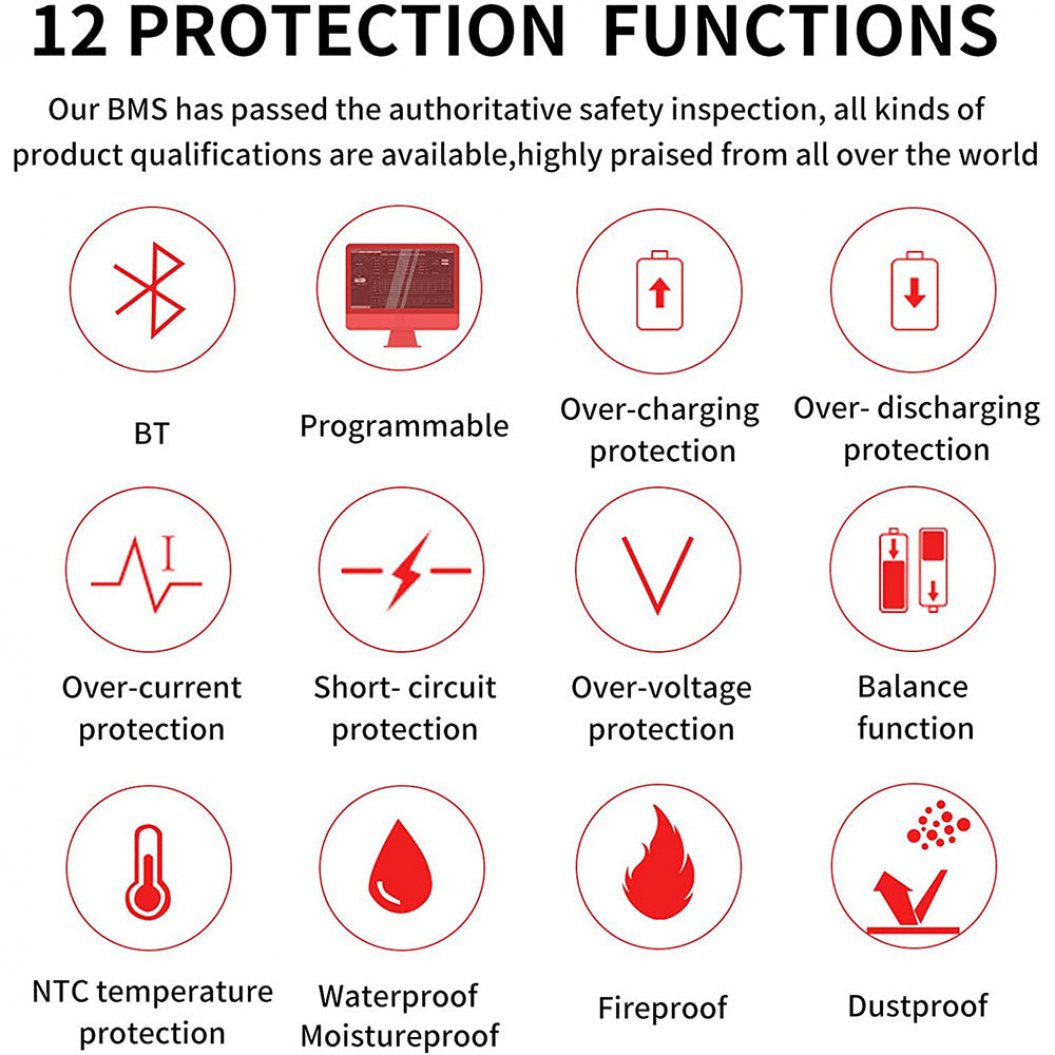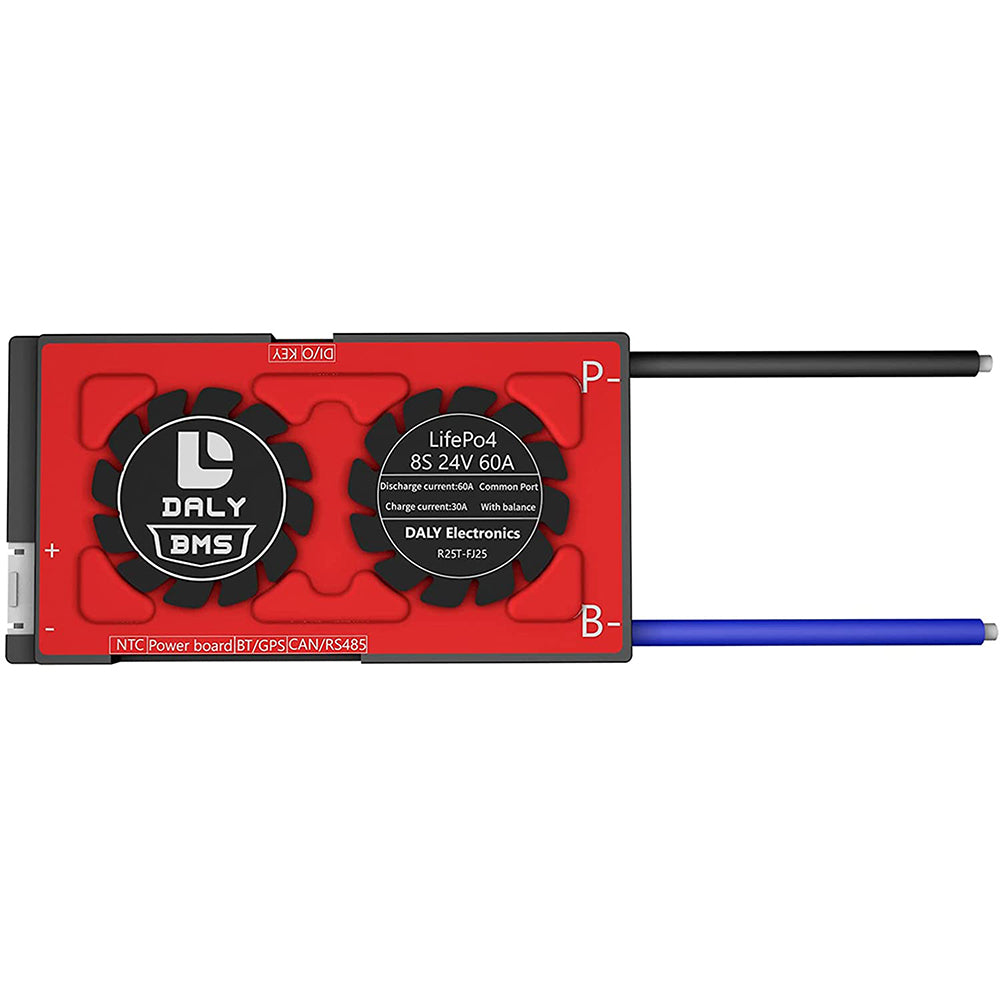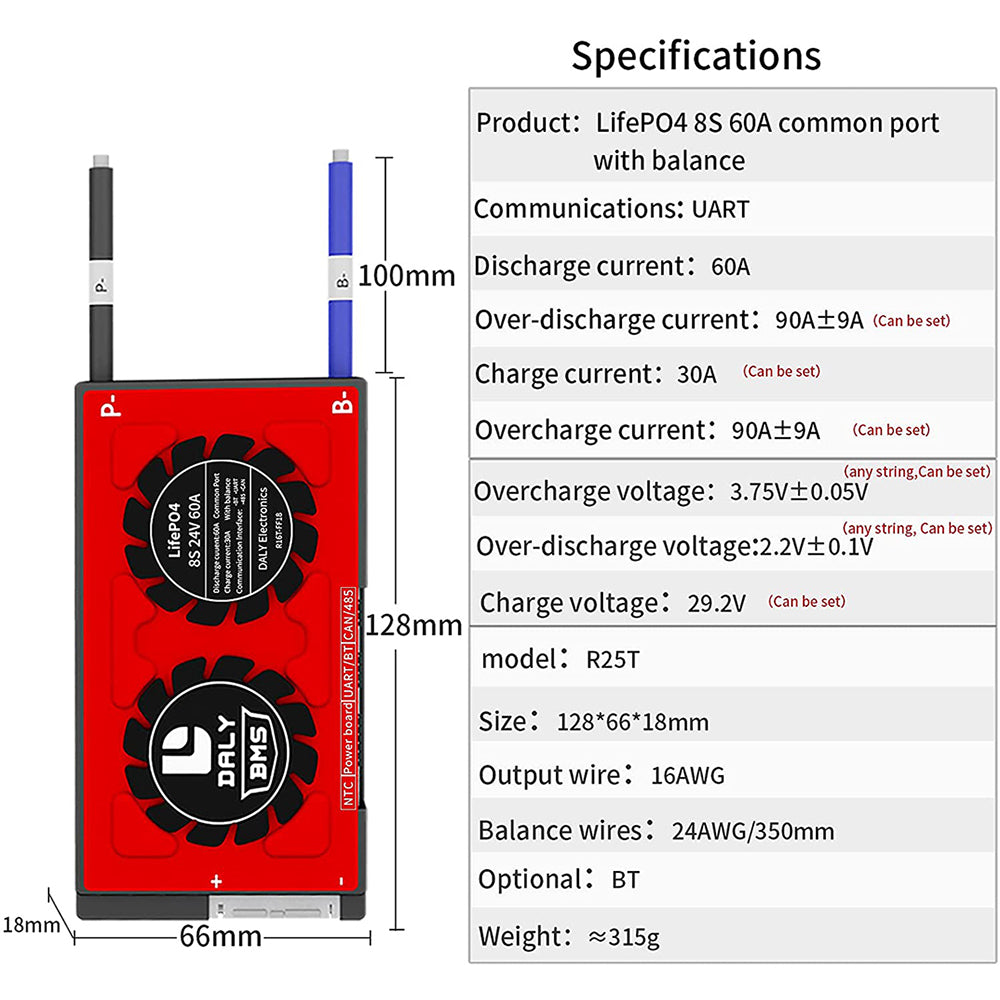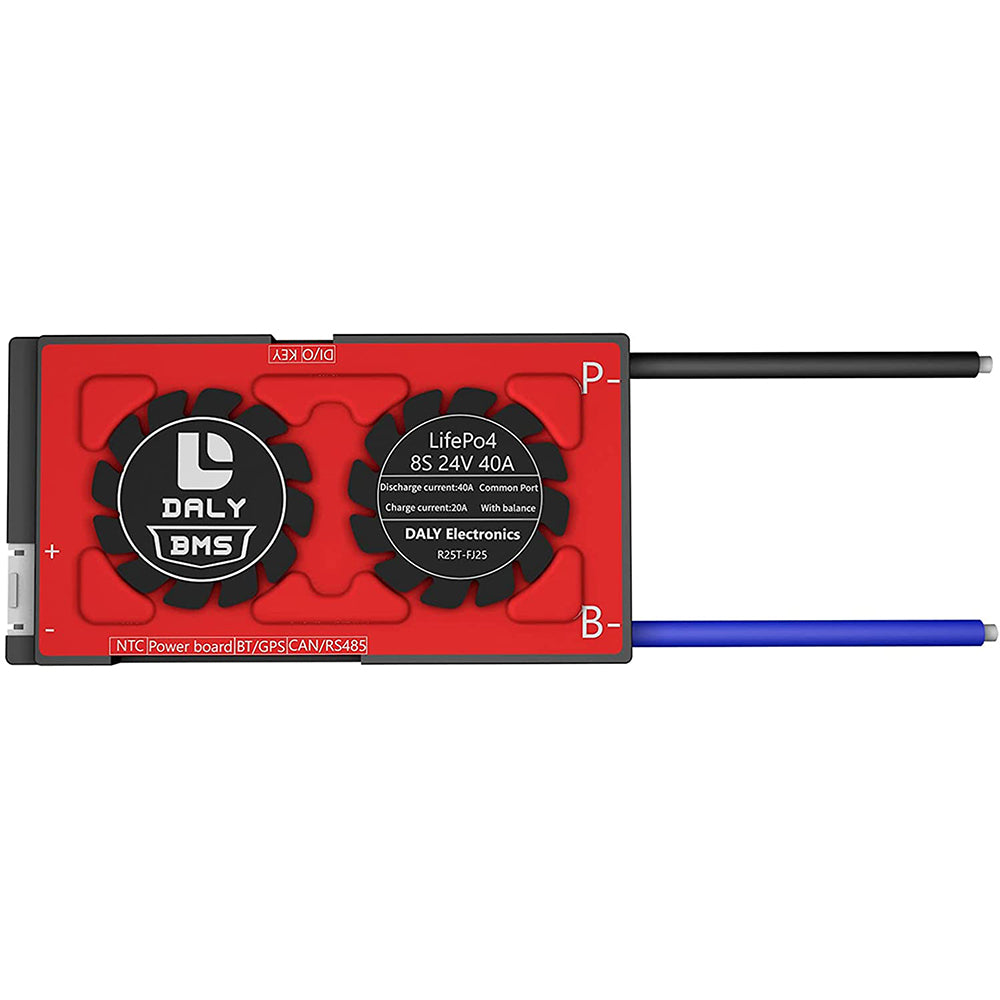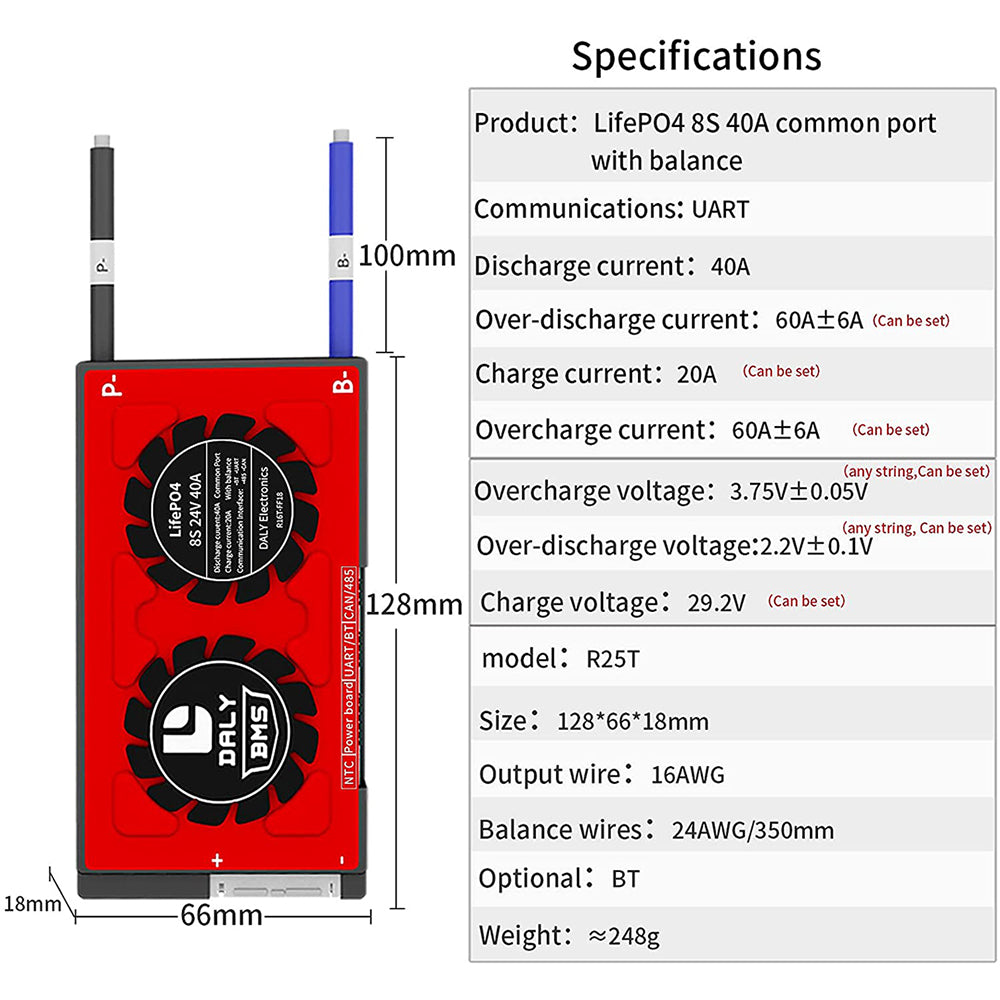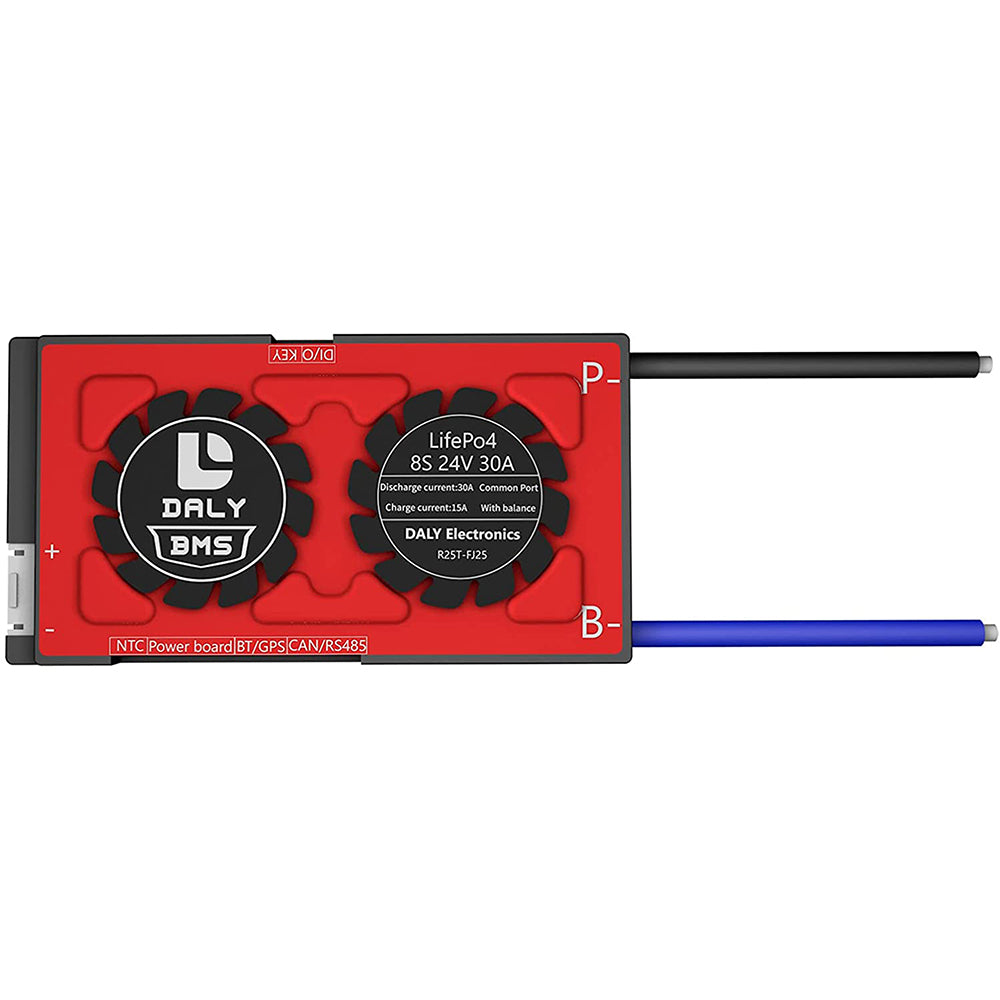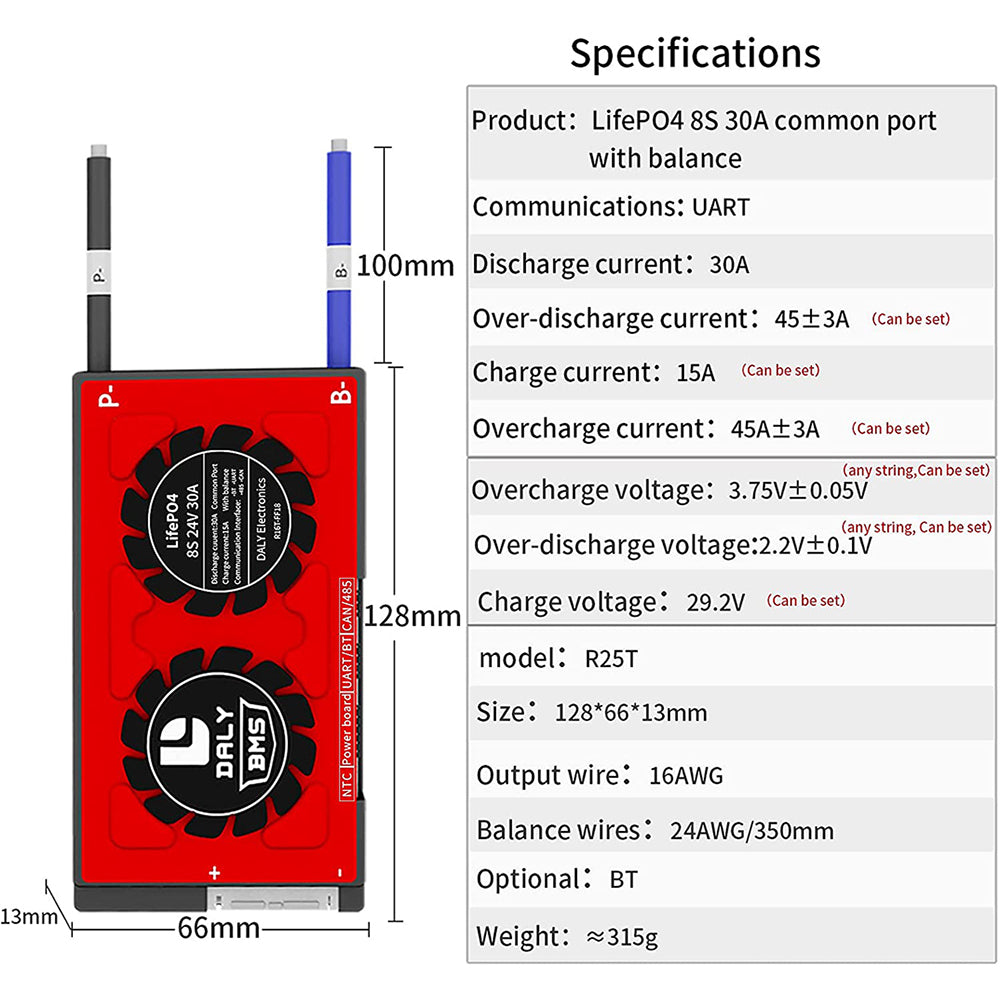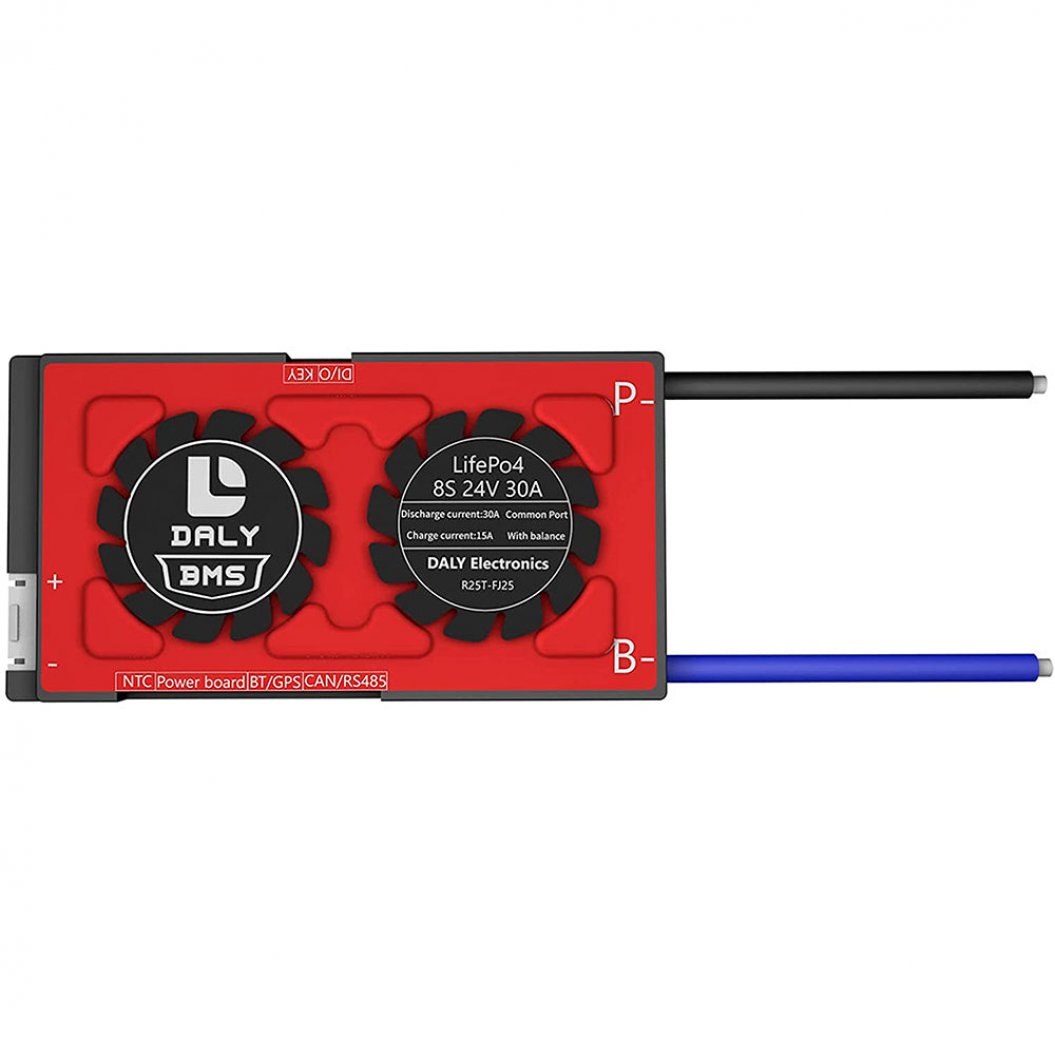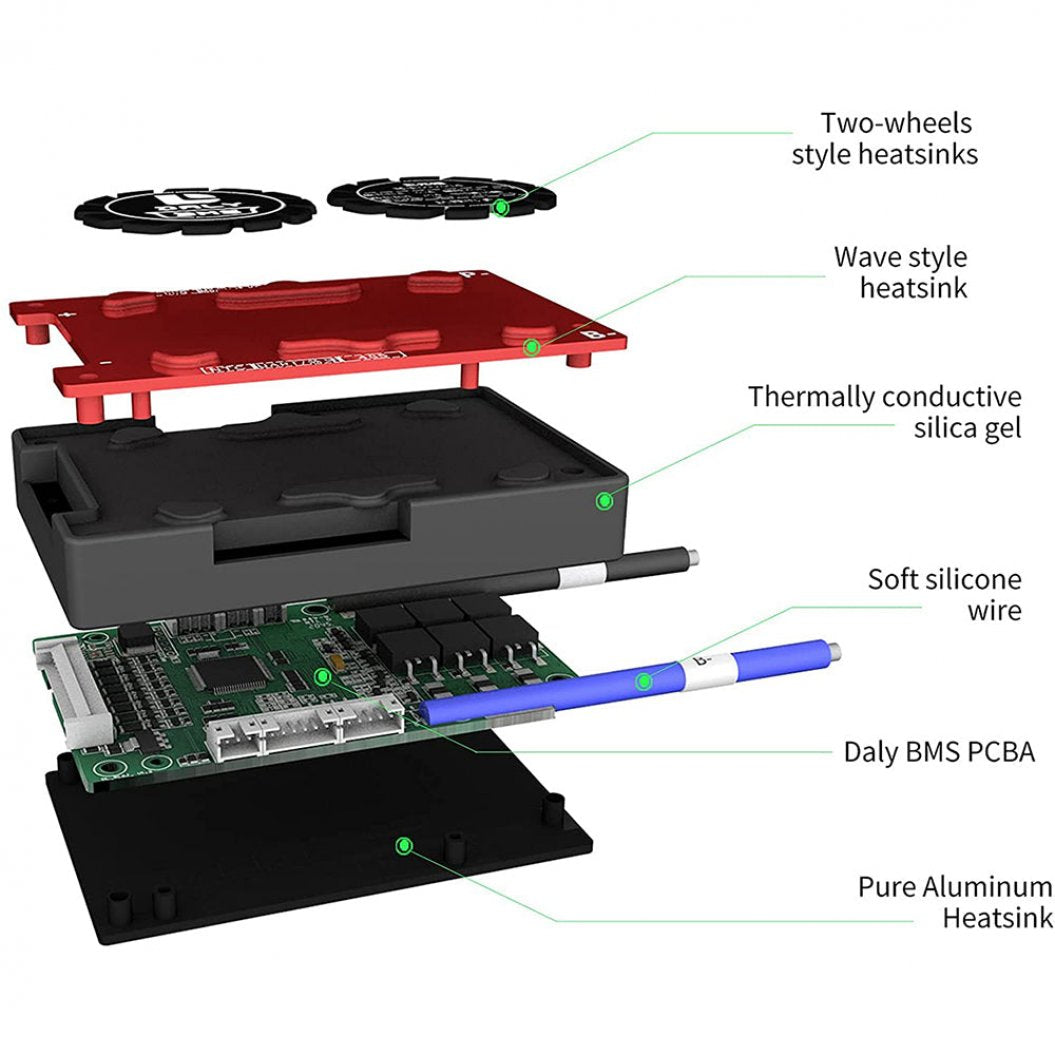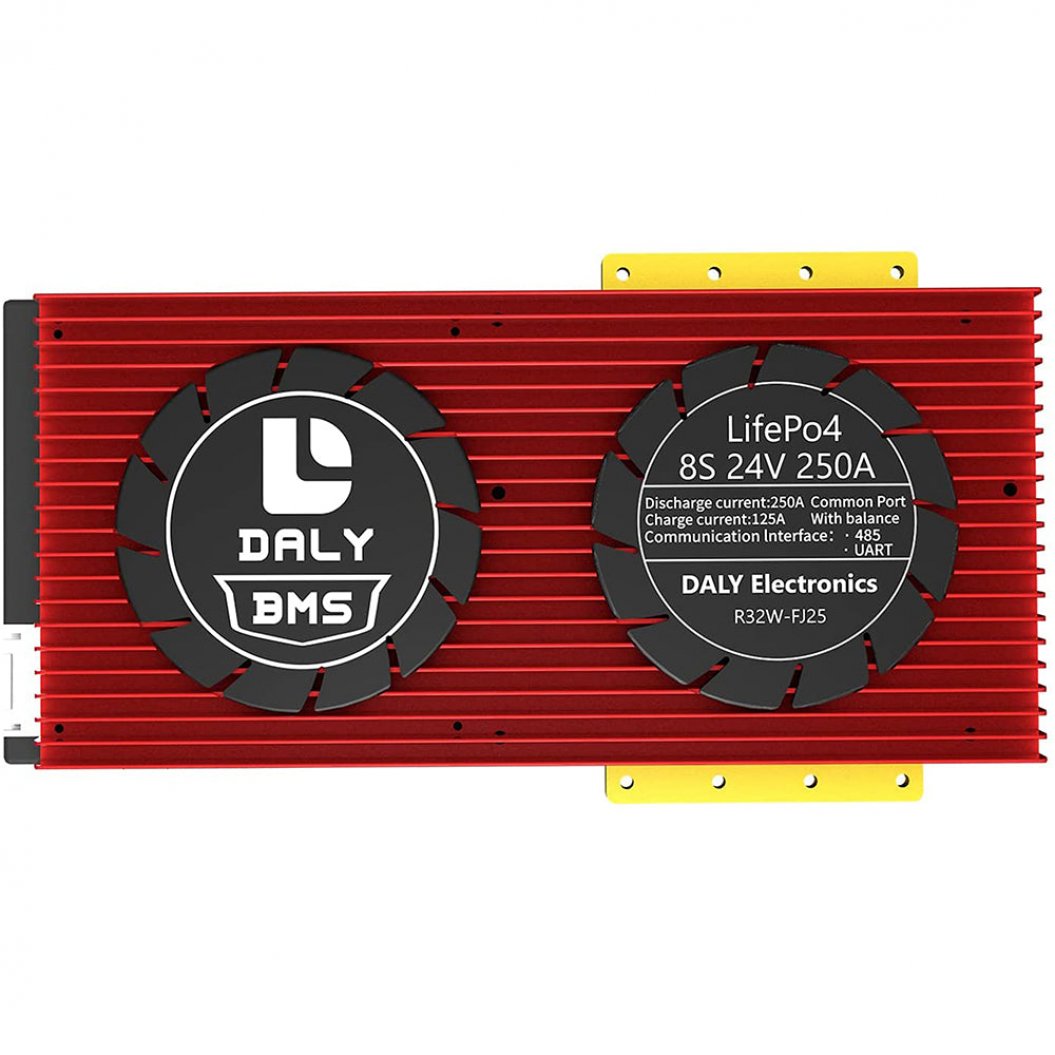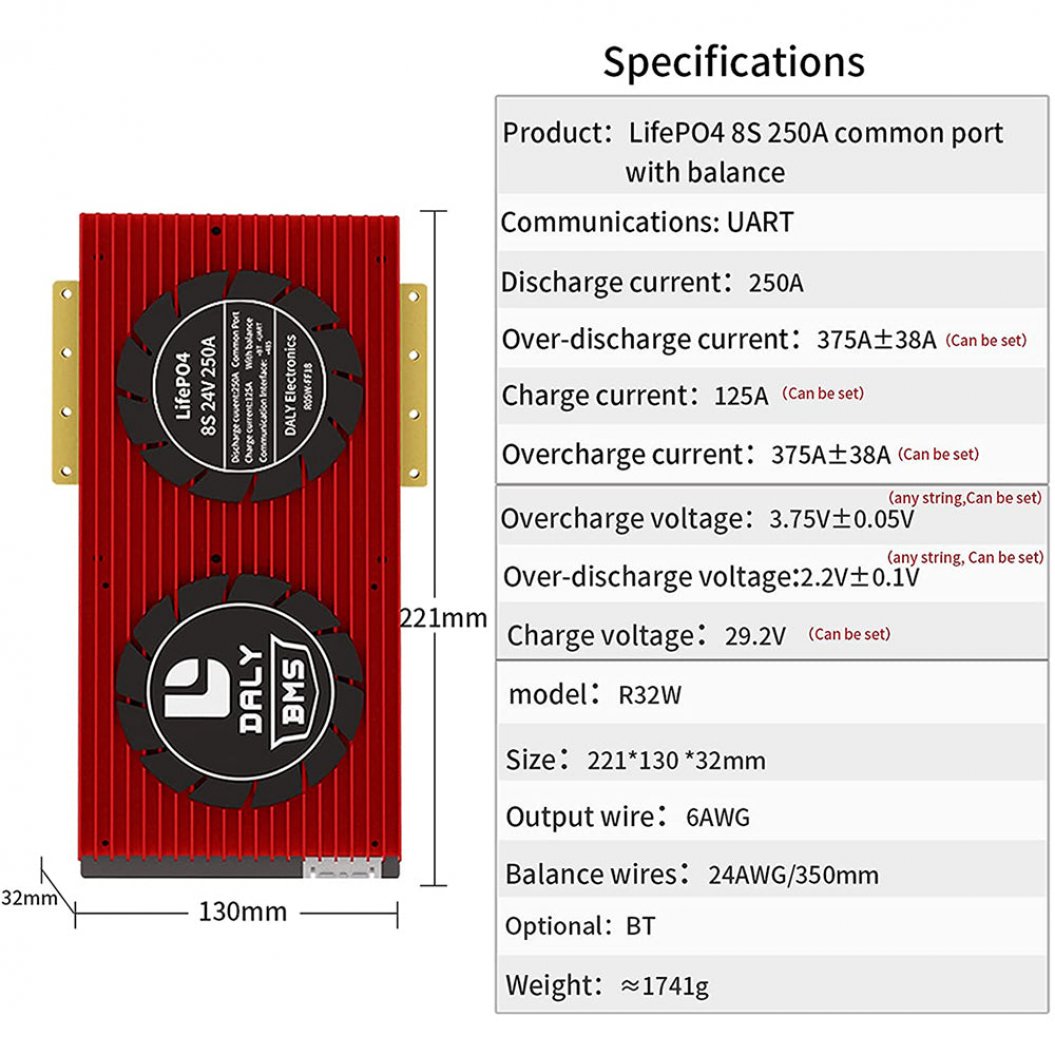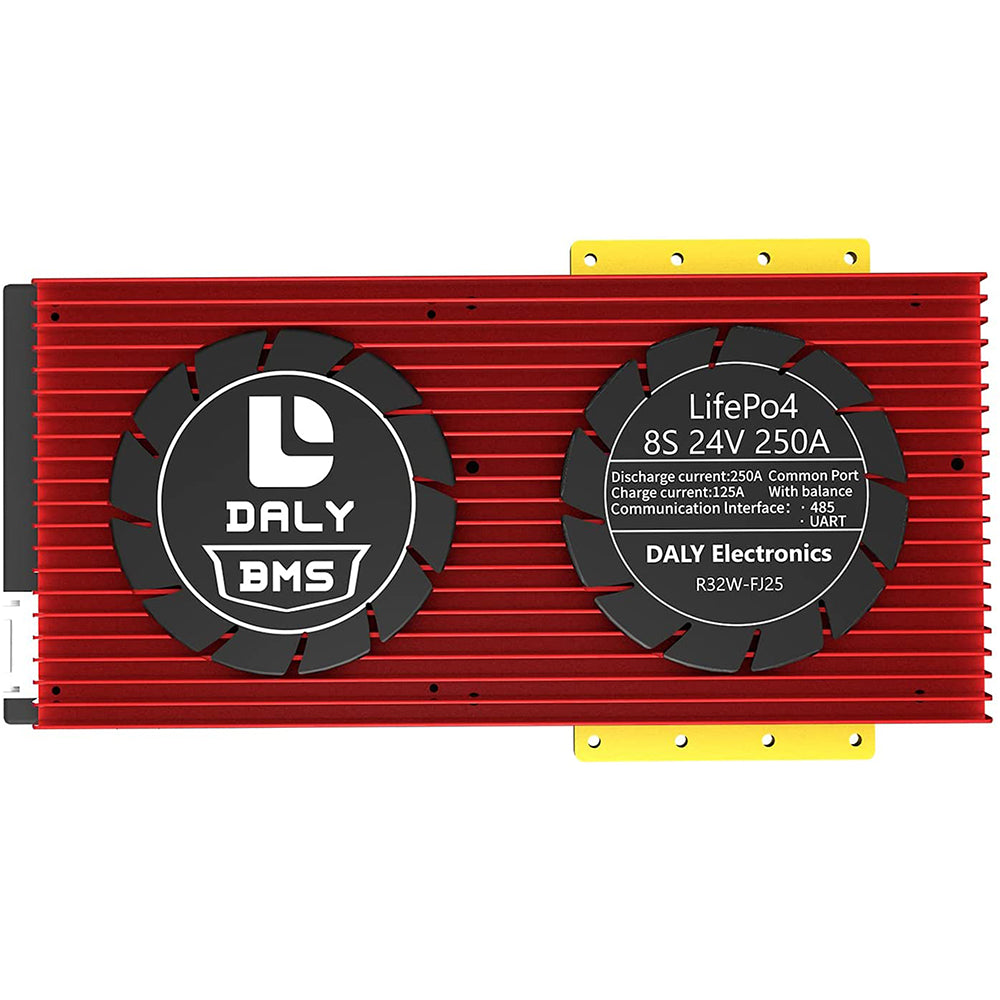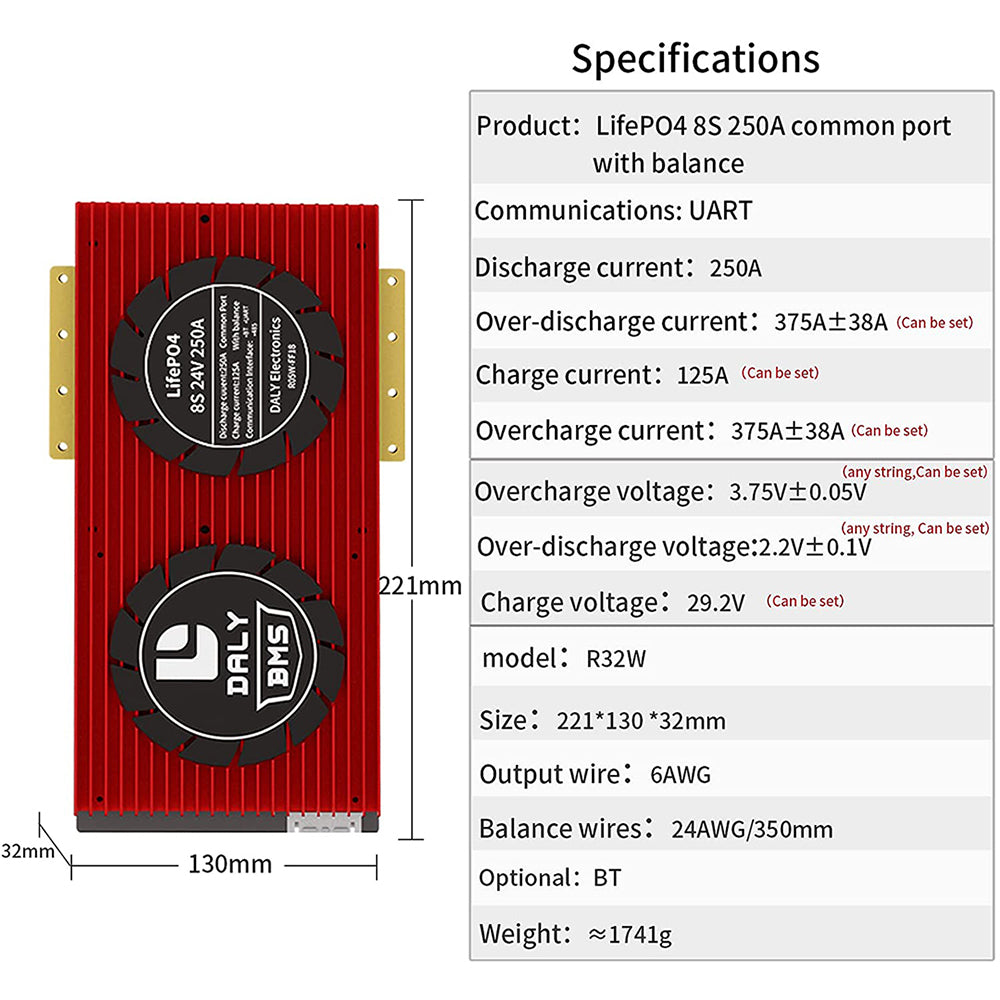-
販売元:BATTERYINT
Daly スマート BMS リン酸鉄リチウム リチウムイオン 16S 48V 60V 100A ブルートゥース 24 65 166
- 通常価格
- $119.00
- 通常価格
-
- セール価格
- $119.00
- 単価
- あたり
Daly スマート BMS リン酸鉄リチウム リチウムイオン 16S 48V 60V 100A... -
販売元:BATTERYINT
Daly スマート BMS リチウムイオンリン酸鉄 8S 24V 80A ブルートゥース BMS ボード 19 66 150
- 通常価格
- $80.80
- 通常価格
-
- セール価格
- $80.80
- 単価
- あたり
Daly スマート BMS リチウムイオンリン酸鉄 8S 24V 80A ブルートゥース BM... -
販売元:BATTERYINT
Daly スマート BMS リチウムイオンリン酸鉄 8S 24V 80A ブルートゥース 19 66 150
- 通常価格
- $89.00
- 通常価格
-
- セール価格
- $89.00
- 単価
- あたり
Daly スマート BMS リチウムイオンリン酸鉄 8S 24V 80A ブルートゥース 19... -
販売元:BATTERYINT
Daly スマート BMS リチウムイオンリン酸鉄 8S 24V 60A ブルートゥース BMS ボード 18 66 128
- 通常価格
- $67.00
- 通常価格
-
- セール価格
- $67.00
- 単価
- あたり
Daly スマート BMS リチウムイオンリン酸鉄 8S 24V 60A ブルートゥース BM... -
販売元:BATTERYINT
Daly スマート BMS リチウムイオンリン酸鉄 8S 24V 500A ブルートゥース BMS ファンボード 52 130 257
- 通常価格
- $422.60
- 通常価格
-
- セール価格
- $422.60
- 単価
- あたり
Daly スマート BMS リチウムイオンリン酸鉄 8S 24V 500A ブルートゥース ... -
販売元:BATTERYINT
Daly スマート BMS リチウムイオンリン酸鉄 8S 24V 40A ブルートゥース BMS ボード 18 66 128
- 通常価格
- $66.99
- 通常価格
-
- セール価格
- $66.99
- 単価
- あたり
Daly スマート BMS リチウムイオンリン酸鉄 8S 24V 40A ブルートゥース BM... -
販売元:BATTERYINT
Daly スマート BMS リチウムイオンリン酸鉄 8S 24V 400A ブルートゥース BMS ファンボード 52 130 257
- 通常価格
- $390.30
- 通常価格
-
- セール価格
- $390.30
- 単価
- あたり
Daly スマート BMS リチウムイオンリン酸鉄 8S 24V 400A ブルートゥース B... -
販売元:BATTERYINT
Daly スマート BMS リチウムイオンリン酸鉄 8S 24V 30A ブルートゥース BMS ボード 13 66 128
- 通常価格
- $58.40
- 通常価格
-
- セール価格
- $58.40
- 単価
- あたり
Daly スマート BMS リチウムイオンリン酸鉄 8S 24V 30A ブルートゥース BM... -
販売元:BATTERYINT
Daly スマート BMS リチウムイオンリン酸鉄 8S 24V リチウムイオン 30A ブルートゥース 13 66 128
- 通常価格
- $69.00
- 通常価格
-
- セール価格
- $69.00
- 単価
- あたり
Daly スマート BMS リチウムイオンリン酸鉄 8S 24V リチウムイオン 30A ブル... -
販売元:BATTERYINT
Daly スマート BMS リチウムイオンリン酸鉄 8S 24V 300A ブルートゥース BMS ファンボード 52 130 257
- 通常価格
- $340.50
- 通常価格
-
- セール価格
- $340.50
- 単価
- あたり
Daly スマート BMS リチウムイオンリン酸鉄 8S 24V 300A ブルートゥース B... -
販売元:BATTERYINT
Daly スマート BMS リチウムイオンリン酸鉄 8S 24V 250A ブルートゥース BMS ボード 32 130 221
- 通常価格
- $199.00
- 通常価格
-
$207.85 - セール価格
- $199.00
- 単価
- あたり
Daly スマート BMS リチウムイオンリン酸鉄 8S 24V 250A ブルートゥース B... -
販売元:BATTERYINT
Daly スマート BMS リチウムイオンリン酸鉄 8S 24V 250A ブルートゥース BMS ボード 32 130 221
- 通常価格
- $215.50
- 通常価格
-
- セール価格
- $215.50
- 単価
- あたり
Daly スマート BMS リチウムイオンリン酸鉄 8S 24V 250A ブルートゥース B...
ショーイング 49 -60 の 290 項目
1. What is a Battery Management System (BMS)?
A Battery Management System (BMS) is an electronic system designed to monitor and manage the performance of rechargeable batteries, ensuring they operate safely and efficiently. The BMS helps control important aspects like voltage, current, and temperature to prevent issues such as overcharging, over-discharging, and overheating. Whether it’s a lithium BMS/b> for lithium-ion batteries or a LifePo4 BMS for lithium iron phosphate batteries, a BMS plays a crucial role in maintaining battery health and extending its lifespan.
2. Why is a BMS important for lithium-ion batteries?
A battery management system/b> for lithium-ion batteries is essential because lithium-ion chemistry is sensitive to overcharging, over-discharging, and high temperatures. Without proper management, these conditions could lead to battery degradation or even safety risks like fire or explosions. A lithium BMS monitors each cell in the battery pack, balancing charge levels and protecting the battery from potential damage, ensuring both safety and longevity.
3. How does a LifePo4 BMS differ from other BMS types?
A LifePo4 BMS is specifically designed for lithium iron phosphate (LifePo4) batteries, which have different voltage and charging requirements compared to other lithium-ion batteries. The LifePo4 battery management system ensures that the unique chemistry of LifePo4 cells is managed correctly, optimizing performance and preventing damage from overcharging or overheating. While a general lithium BMS/b> works for various lithium-based batteries, a LifePo4 BMS is tailored to meet the needs of LifePo4 batteries.
4. Can a BMS protect a battery from overcharging?
Yes, a BMS is designed to protect the battery from overcharging. In a BMS battery management system, overcharge protection is a key feature that monitors the voltage of each cell and ensures it doesn’t exceed safe levels. If a cell’s voltage gets too high, the BMS will stop the charging process to prevent damage. This function is crucial for lithium-ion and LifePo4 battery management systems, as overcharging can lead to battery degradation or safety hazards.
5. What are the key functions of a battery management system/b>?
A battery management system/b> has several key functions, including monitoring the state of charge, managing the voltage and current levels, balancing individual cells in a battery pack, and providing protection against overcharging, over-discharging, and overheating. In a lithium BMS/b> or a LifePo4 BMS, these functions ensure that the battery operates within safe parameters, extending its lifespan and optimizing performance. Additionally, a BMS often communicates with external devices to provide real-time data on battery status.
6. Do I need a BMS for LifePo4 batteries?
Yes, using a LifePo4 battery management system is essential for LifePo4 batteries. LifePo4 batteries, like other lithium-based chemistries, require careful monitoring of voltage, current, and temperature to ensure they operate safely. A LifePo4 BMS helps prevent overcharging and over-discharging, balances the cells within the battery pack, and protects the battery from excessive heat, ensuring optimal performance and long-term reliability.
7. Can a BMS be used for different types of batteries?
While some battery management systems are designed to be universal, many are tailored to specific battery chemistries. For example, a lithium BMS/b> may work across different lithium-based batteries, but a LifePo4 BMS is optimized for the specific characteristics of LifePo4 cells. It’s important to choose the correct BMS for the battery type you are using to ensure proper protection and performance, as each chemistry has unique voltage and charging requirements.
8. How does a BMS balance cells in a battery pack?
A BMS balances cells in a battery pack by monitoring the voltage of each individual cell and redistributing the charge to ensure that all cells remain at the same voltage level. This balancing process is especially important in multi-cell lithium-ion or LifePo4 battery packs, where differences in cell voltage can lead to reduced performance or even damage. A battery management system lithium ion pack or a LifePo4 BMS ensures that the cells are evenly balanced, maximizing efficiency and extending battery life.
9. What happens if a battery pack doesn’t have a BMS?
Without a BMS, a battery pack is at greater risk of overcharging, over-discharging, and overheating, which can lead to battery damage, reduced capacity, or safety issues. In lithium-ion and LifePo4 batteries, these risks are especially high due to the sensitive nature of chemistry. A BMS battery management system ensures that each cell in the pack is properly monitored and protected, which is crucial for long-term battery health and safety.
10. How do I choose the right BMS for my battery pack?
To choose the right BMS for your battery pack, first consider the battery chemistry you are using. If you are working with lithium-ion batteries, you’ll need a lithium BMS/b>, while a LifePo4 battery management system is ideal for LifePo4 batteries. Additionally, make sure the BMS is compatible with the voltage and capacity of your battery pack. Look for features like overcharge protection, temperature monitoring, and cell balancing to ensure your BMS provides comprehensive protection and optimal performance.

